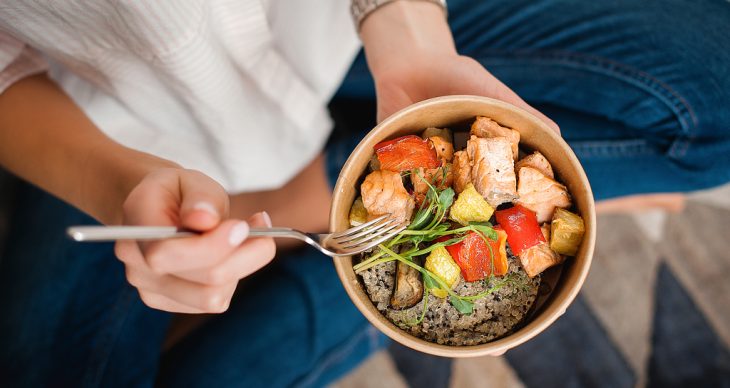Do NOT skip meals if you have diabetes. This is one of the most common slip-ups among people living with type 1 and type 2 diabetes. Eating irregularly does not allow the body to give itself enough time for proper digestion.
Skipping meals causes your blood sugar to drop, especially if you have already taken medication. Low blood sugar carries dangerous risks and side effects, including dizziness and loss of consciousness.
One way to avoid this mistake is to divide your daily meals into smaller, more frequent meals. “Grazing” refers to eating several small meals evenly throughout the day. Consuming food steadily all day maintains stable blood sugar.
However, you should still be conscious of what food you are eating the entire day. Grazing does not mean snacking. The small meals should be nutritious and healthy.
You might think it’s okay to skip meals if you’ve eaten a large breakfast, but that simply is not true. Your blood sugar levels are extremely influenced by what you eat and when you eat. Eating helps your body even out your blood sugar levels throughout the day. Large gaps in mealtimes can create huge swings in your glucose levels.
When you skip meals, you are more likely to binge on junk food. If you are prone to forgetting to eat, keep convenient and healthy snacks handy. Nuts have protein and fruit has simple sugar and are better alternatives to chips, brownies, and candy.
Skipping meals can also cause fatigue and for your mind to become foggy. If you are working out, lack of food can be dangerous, as you could become dizzy and nauseous. Even if you are not feeling hungry, you should eat meals regularly.
When you create your diabetes grocery list, be sure to avoid certain types of foods that could negatively impact your diabetes management.
Try to limit or avoid the following:
- Food high in saturated and trans fats.
- Salty food.
- Sugary food.
- White flour.
- Processed grains and foods.
Instead, incorporate things like fruits, vegetables, whole grains, lean meats, fish and poultry. Your diabetes grocery listshould also include a few high-glucose products that you can carry with you in the event of a drop in blood sugar.
Glucose gel, glucose tablets and other similar products can come in handy if you are away from home and see a drop in your blood sugar. They are designed to spike your glucose levels to balance you out as quickly as possible.
By Admin –
